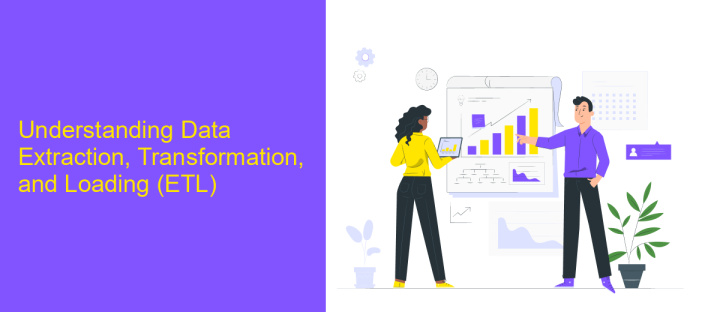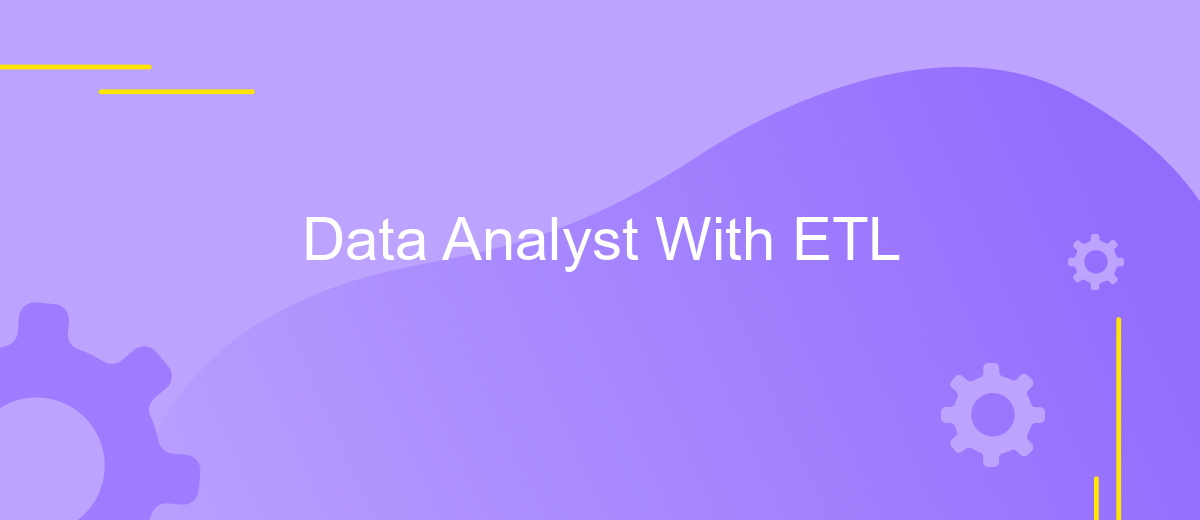Data Analyst With ETL
In today's data-driven world, the role of a Data Analyst with expertise in ETL (Extract, Transform, Load) processes is more crucial than ever. These professionals not only gather and interpret complex datasets but also ensure that data is accurately extracted, transformed, and loaded into systems for seamless analysis. This article delves into the essential skills, tools, and responsibilities that define a proficient Data Analyst with ETL capabilities.
Introduction to Data Analysts with ETL
Data analysts with ETL (Extract, Transform, Load) skills play a crucial role in managing and optimizing data flows within an organization. They are responsible for extracting data from various sources, transforming it to fit operational needs, and loading it into a data warehouse or another destination system. This process ensures that data is clean, reliable, and ready for analysis.
- Extract: Gathering data from multiple sources such as databases, APIs, and flat files.
- Transform: Cleaning, filtering, and organizing the data to meet specific requirements.
- Load: Importing the processed data into a target system for further analysis.
One of the tools that can significantly aid in the ETL process is ApiX-Drive. This service allows seamless integration between various data sources and destinations, automating the data flow and reducing the need for manual intervention. By leveraging such tools, data analysts can focus more on deriving insights and less on the technicalities of data integration.
Understanding Data Extraction, Transformation, and Loading (ETL)

Data extraction, transformation, and loading (ETL) is a crucial process for data analysts, enabling them to gather data from various sources, clean and transform it into a suitable format, and load it into a data warehouse for analysis. Extraction involves retrieving raw data from multiple sources such as databases, APIs, and flat files. This step is essential for collecting relevant information that will be analyzed to drive business decisions.
Transformation is the next phase, where the extracted data is cleaned, normalized, and converted into a consistent format. This step often involves removing duplicates, handling missing values, and ensuring the data adheres to predefined standards. Finally, the loading phase involves transferring the transformed data into a data warehouse or another storage system. Tools like ApiX-Drive can simplify the ETL process by automating data integration between various platforms, ensuring a seamless and efficient workflow for data analysts.
Data Analytics in the Context of ETL

Data analytics plays a pivotal role in the ETL (Extract, Transform, Load) process, offering insights and driving data-driven decisions. By analyzing data, businesses can identify trends, uncover patterns, and make informed decisions that enhance operational efficiency and strategic planning.
- Data Extraction: Collect data from various sources such as databases, APIs, and flat files.
- Data Transformation: Cleanse, standardize, and enrich the data to ensure accuracy and consistency.
- Data Loading: Load the transformed data into a target data warehouse or database for analysis.
To streamline the ETL process, tools like ApiX-Drive can be invaluable. ApiX-Drive facilitates seamless integration between different data sources and applications, automating data extraction and loading tasks. By leveraging such services, data analysts can focus more on interpreting data and generating actionable insights rather than spending time on manual data handling. This not only improves efficiency but also ensures data accuracy and reliability.
Job Responsibilities and Skill Requirements

As a Data Analyst with ETL expertise, you will be responsible for extracting, transforming, and loading data from various sources to support business decision-making processes. You will work closely with cross-functional teams to ensure data accuracy and integrity, enabling comprehensive data analysis and reporting.
In this role, you will design and implement ETL processes, troubleshoot data issues, and optimize workflows to enhance efficiency. You will also be responsible for maintaining documentation and ensuring compliance with data governance policies. Your role will involve using tools such as ApiX-Drive to facilitate seamless data integration across different platforms.
- Develop and maintain ETL processes to support data analytics initiatives
- Collaborate with stakeholders to understand data requirements and deliver actionable insights
- Utilize ApiX-Drive for integrating data from various sources
- Ensure data quality and integrity through rigorous testing and validation
- Maintain comprehensive documentation of ETL processes and data workflows
To be successful in this role, you should have strong analytical skills, proficiency in SQL, and experience with ETL tools. Familiarity with ApiX-Drive or similar integration platforms is highly desirable. Excellent problem-solving abilities and attention to detail are essential for ensuring data accuracy and reliability.
- Automate the work of an online store or landing
- Empower through integration
- Don't spend money on programmers and integrators
- Save time by automating routine tasks
Career Opportunities and Future Prospects
As a Data Analyst specializing in ETL (Extract, Transform, Load) processes, you will find a plethora of career opportunities across various industries such as finance, healthcare, retail, and technology. Companies are increasingly relying on data-driven decisions, making your skills highly sought after. You can work in roles such as ETL Developer, Data Engineer, Business Intelligence Analyst, or even transition into data science roles. Your expertise in managing and optimizing data pipelines ensures that organizations can make informed decisions based on accurate and timely data.
The future prospects for Data Analysts with ETL skills are promising, as the demand for data integration and analysis continues to grow. With the rise of cloud computing and big data technologies, professionals adept at using tools like ApiX-Drive for seamless integration and automation will be in high demand. ApiX-Drive, for instance, allows you to connect various applications and automate data workflows, enhancing your efficiency and value to employers. Continuous learning and staying updated with the latest ETL tools and technologies will further enhance your career growth and opportunities.
FAQ
What is ETL in the context of Data Analysis?
What skills are essential for a Data Analyst working with ETL?
How can ETL processes be automated?
Why is data transformation important in ETL?
What are common challenges faced in ETL processes?
Time is the most valuable resource for business today. Almost half of it is wasted on routine tasks. Your employees are constantly forced to perform monotonous tasks that are difficult to classify as important and specialized. You can leave everything as it is by hiring additional employees, or you can automate most of the business processes using the ApiX-Drive online connector to get rid of unnecessary time and money expenses once and for all. The choice is yours!


